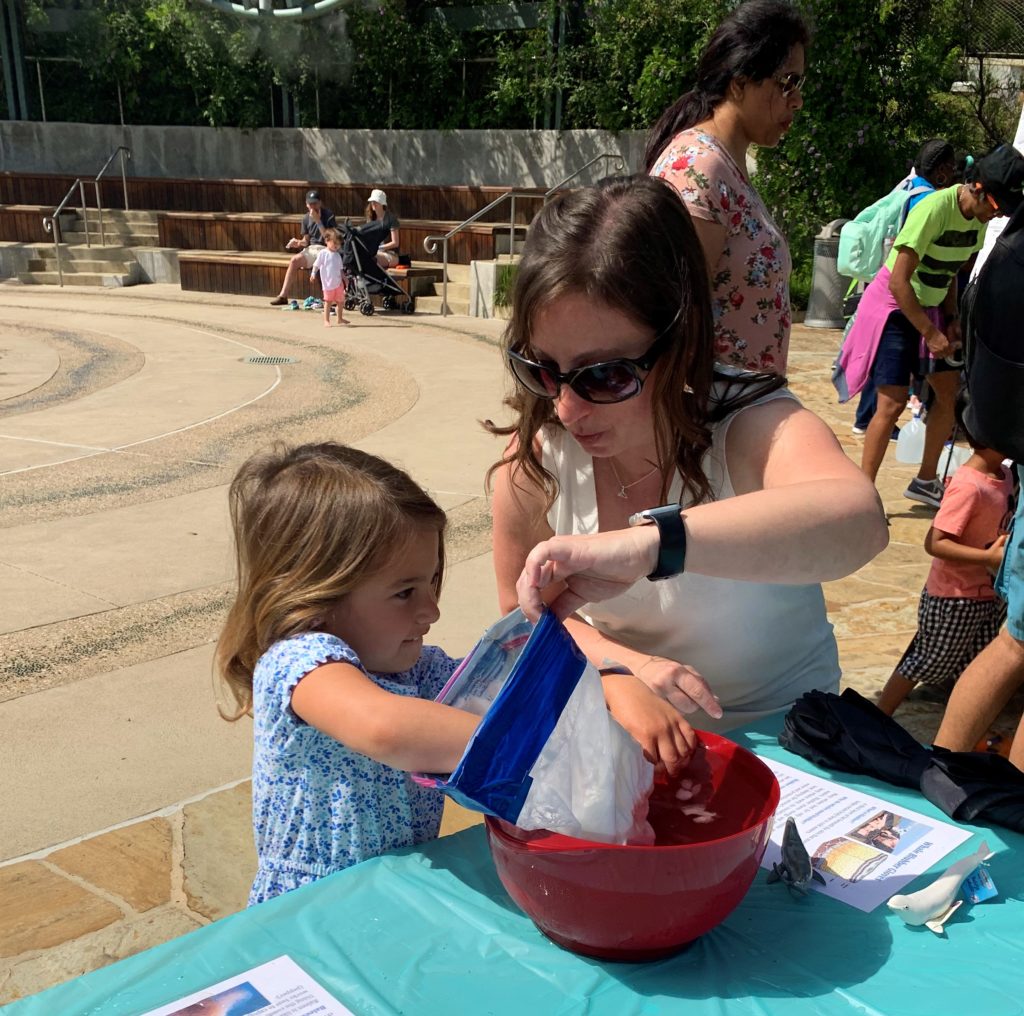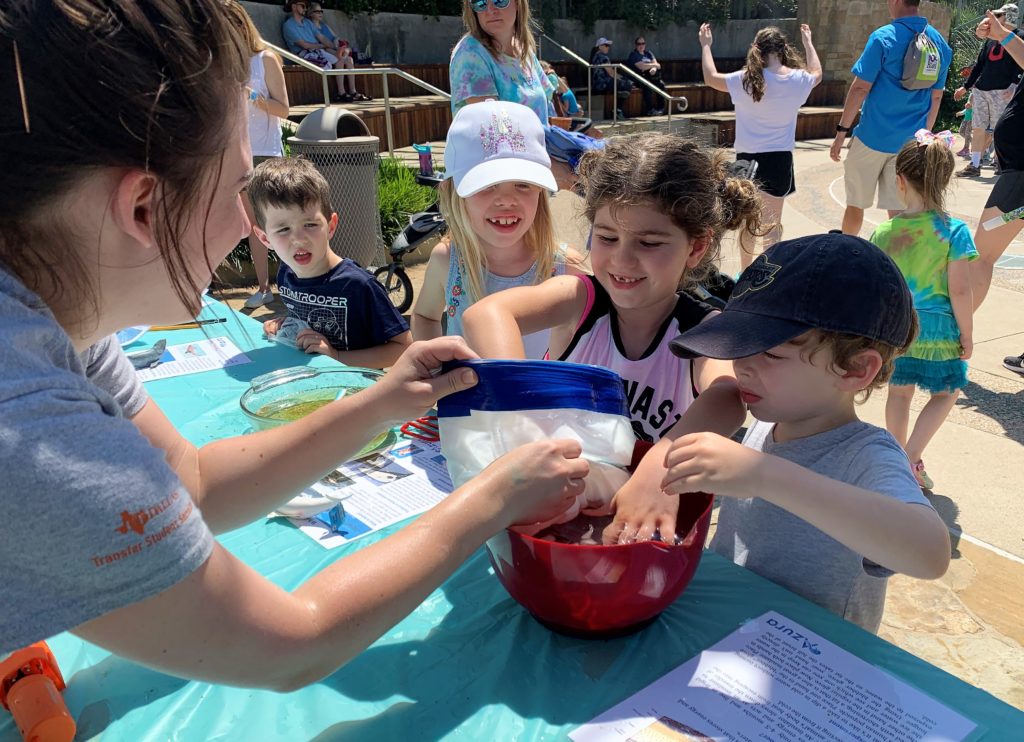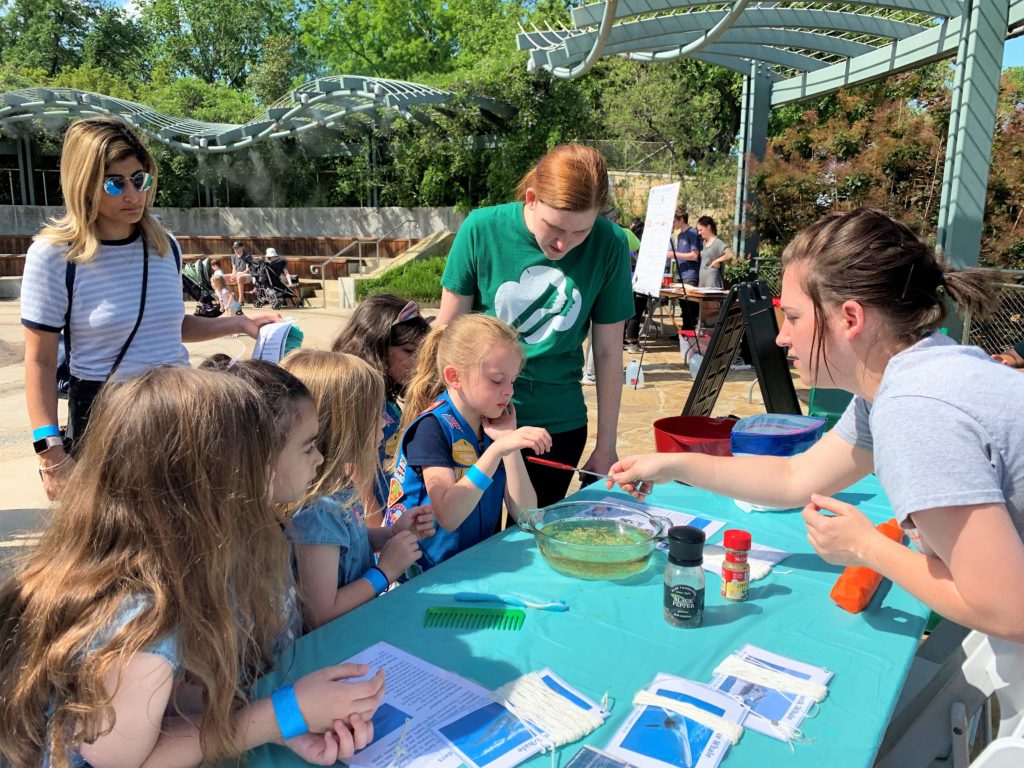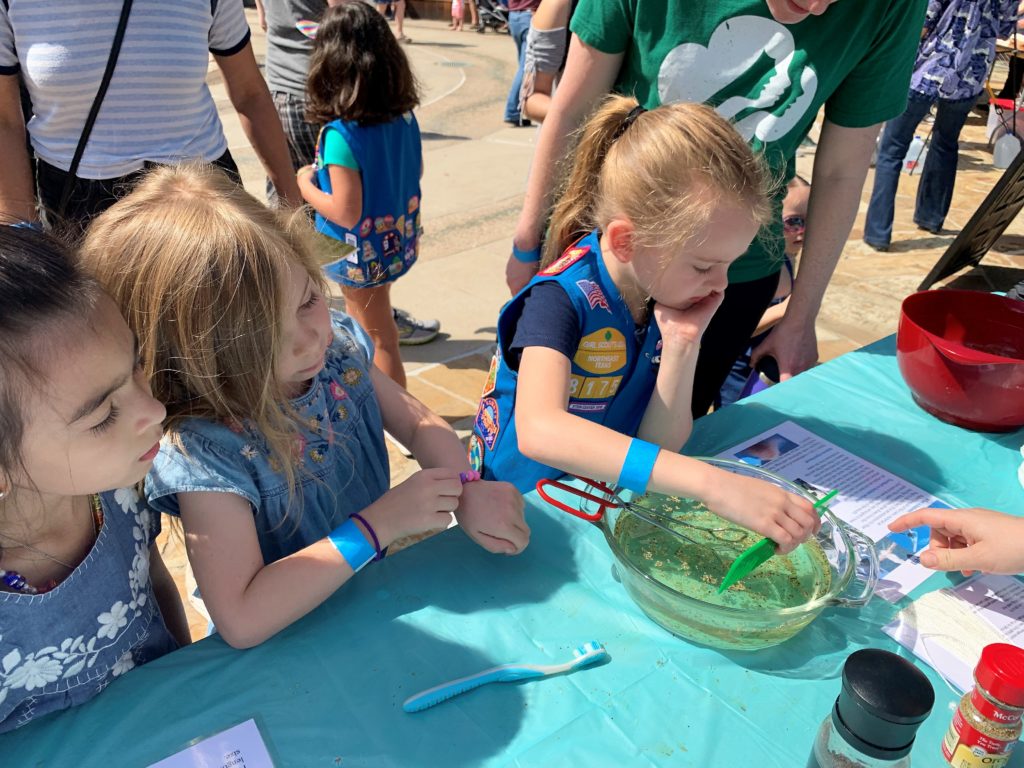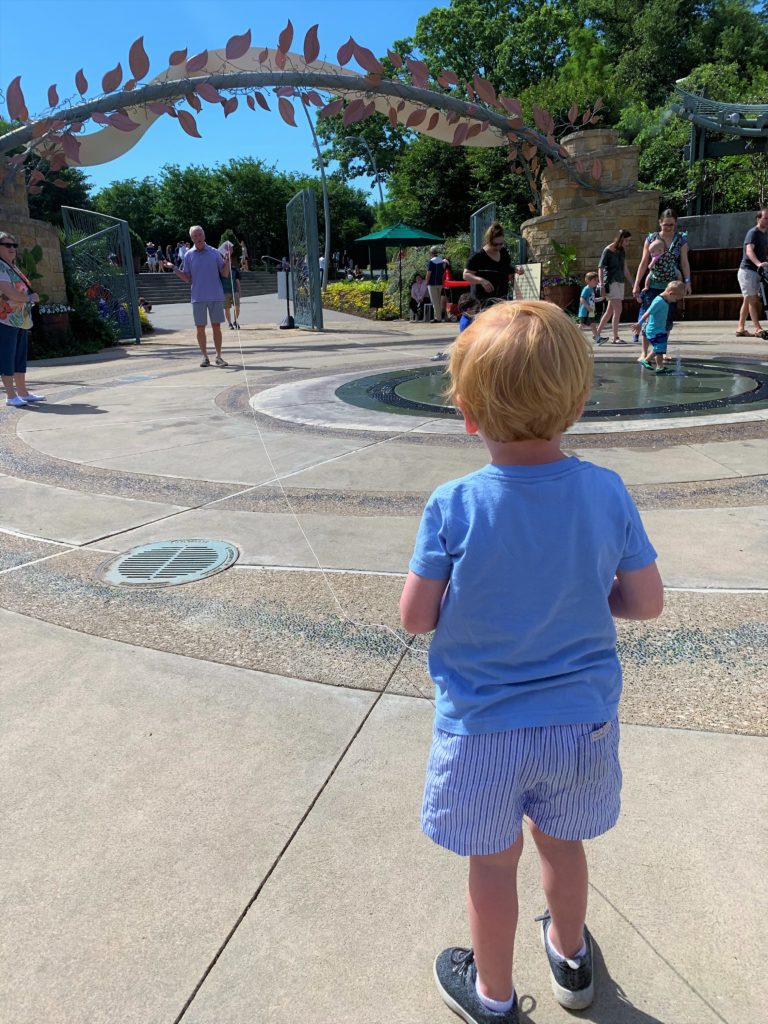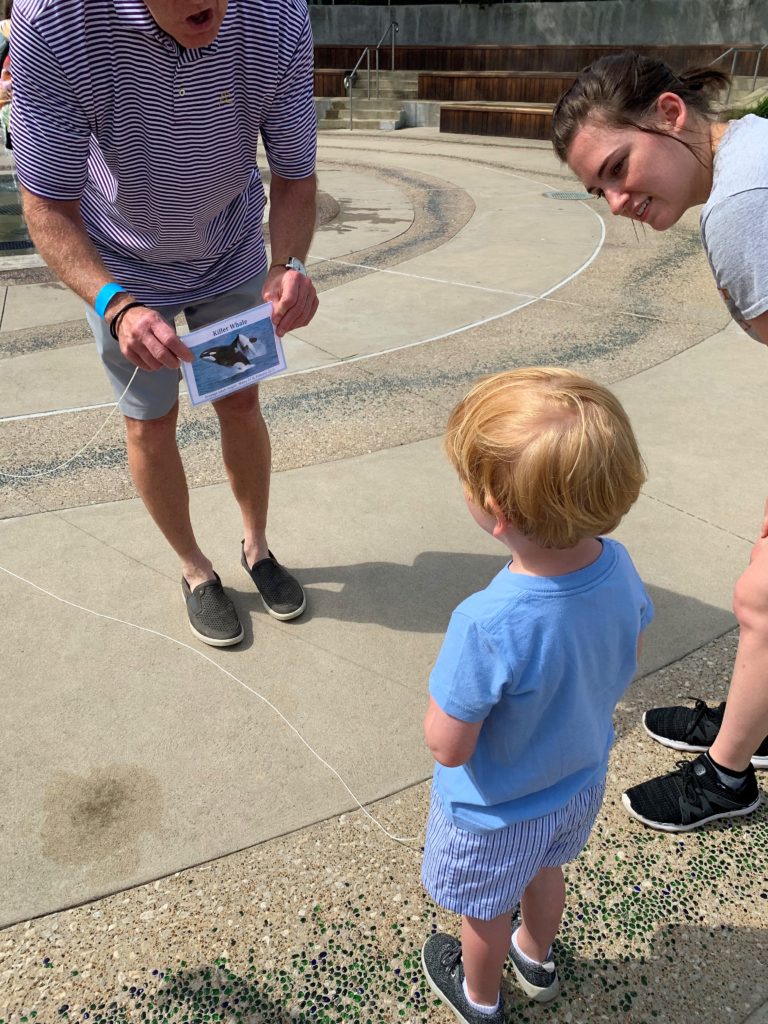
On Saturday April 27, Azura celebrated Earth Day with kids and parents at the Dallas Arboretum and Botanical Garden. We partnered with the School of Natural Sciences & Mathematics at The University of Texas at Dallas to provide hands-on K-12 activities on geology, chemistry, marine life, space, physics, and more. For the third year, Azura’s scientists and volunteers brought the wonders of whales to Dallas-Fort Worth kids and parents. We used our blubber and baleen experiments to show kids how whales stay warm in cold ocean waters and how they eat tiny prey like krill. With our Whale Walk activity, kids were amazed at how large whales are, especially the gigantic blue whale!
Activity #1 Blubber Gloves Experiment
Blubber, the thick layer of fat beneath the skin, stores energy and keeps whales warm in cold waters. The kids got to feel what it’s like to take a dip in cold water without turning into a human popsicle. We used shortening, another insulating fat, stuffed between two plastic bags to serve as our glove of blubber. The kids placed one hand in the blubber glove and placed both the gloved hand and the bare hand in a bowl of ice water to see which hand they could keep in the ice water longer. Using the blubber glove, the hand isn’t directly exposed to the water, so the fat takes the full brunt of the cold.
Activity #2 Baleen Experiment
All whales are divided into toothed whales (odontocetes) and baleen whales (mysticetes). Odontocetes have jaws lined with pointed teeth that are used in hunting fish, squid, and other prey. Mysticetes lack teeth and use their baleen to filter small fish and tiny crustaceans from the water. Kids discovered how baleen whales use their baleen plates to filter food out of water. Baleen is like a combination of a comb and toothbrush. To simulate tiny fish and krill floating in water we sprinkled basil and pepper into a large bowl of water. The kids used a large comb, toothbrush, tongs, and a cheese grater to find out which one works best to capture more tiny fish (basil) and krill (pepper). The kids collected more fish with the comb and more krill with the toothbrush, showing that this combination definitely yields the most prey for baleen whales.
Activity #3 Whale Walk
Whales vary greatly in size. For example, the blue whale is the largest animal on Earth. It can grow to 110 ft long and weigh up to 330,000 lbs! The dwarf sperm whale is considered the world’s smallest whale and can grow up to 9 ft long and weigh 300-600 lbs. We made whale identification cards for a variety of whale species, including the blue whale, sperm whale, and killer whale. We measured out yarn for the average length of these whale species and attached yarn to each card. The kids got to pick a whale identification card, extend the yarn, and walk the length of each species to see how whales differ greatly in size. Everyone was quite surprised at the gigantic size of the blue whale!
Thanks so much to our scientists and volunteers for their hard work in making this event a success! We look forward to showing the Dallas-Fort Worth area a “whale of a good time” again next year!
